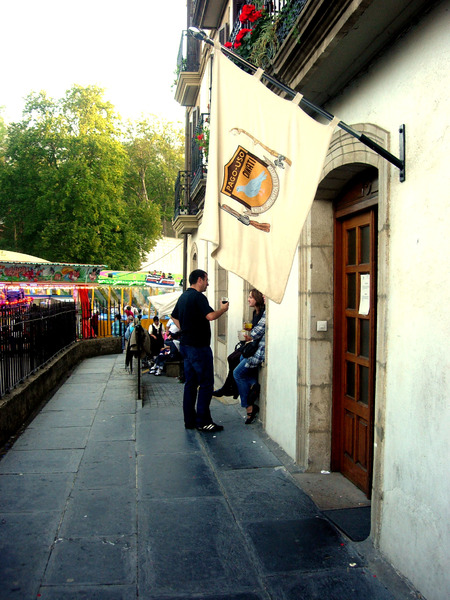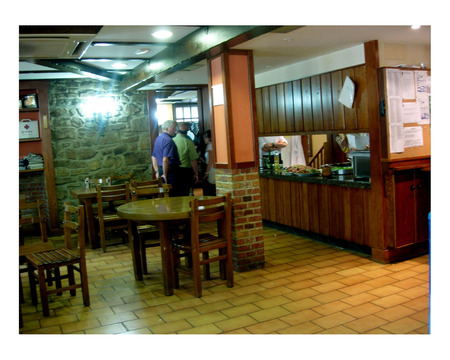the txoko: basque gastronomic societies
During our visit to Oñati, our gracious cuadrillo of hosts invited us to their txoko, which is the basque word for a gastronomic society. This is a group, made up mostly of men, that has its own space with a kitchen, bar, and large dining areas. The members of the group meet to cook, eat, and celebrate. It's like a cross between a dinner club and a flag football team.
Members buy/harvest/collect/kill the food and then invite friends and other members of the society to come and dine on the food after the cook it on the premise. In this particular txoko, there was an area that resembled a bar, where we sat for a while and sipped on sidra (poured skillfully by Mikel Angel, above) and vino tinto.
When we took our seats at the long, wooden tables, they had been set up with a checkered tablecloth, plates, several bottles of cider and wine, and a spread of food including cheese, jamón ibérico, bread, little toasts, paté, and guindilla peppers. Yum. At this point, I was too famished to do any photographing.

Then Andoni brought out a typical salad from here, with tuna, tomato, lettuce, white asparagus, and olives. So good. The white asparagus is a specialty of Navarra, and it's got a soft, earthy flavor worlds apart from the green stuff.
Txoko literally means 'corner'. The first of these gastronomic societies date back to the mid-1800s in Donostia.
It really is a unique phenomenon, this institutionalizing of male cooks. Women have only recently been allowed entry, and still it's typically men that do the preparation. The Basque society is fairly matriarchal, which could be one of the reasons these societies were founded.
Another reason is definitely the importance of food here. Why is it so highly regarded? One has to suppose that it is at least in part due to the incredible, and i mean incredible, quality of produce here. It's the best of the best, food that benefits most from simple dressings of salt, pepper, and olive oil. Food that cannot be replicated in other regions, countries, and continents no matter how well-intentioned and skilled the chef.
We finished our meal with a stew of tender beef and potatoes, soaked up by plenty of bread. Then coffee. Then little pastries. Then a glass of orujo, a delicious digestif typical of Galicia, and we were on our way after a three hour festín of marathon eating.







